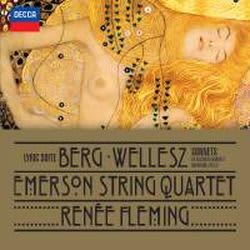Περιγραφή
Καλλιτέχνες
|
Contents
Here the remarkable young Peruvian tenor Juan Diego Florez not only offers us what we’ve become accustomed to—gorgeous, graceful singing of very difficult bel canto gems (in this case, high-flying, virtuosic arias from Rossini’s Semiramide and L’Italiana in Algeri. He also ventures into unknown waters. He sings an aria added by Donizetti for an Italian production of The Daughter of the Regiment (“La figlia” rather than the usual “La fille”) which turns out to be just right for his voice, and he charms with his crisp diction and youthful approach. Paolino’s aria from Cimarosa’s Il matrimonio segreto is a substantial piece of bel canto writing, with some nice coloratura fireworks near the end which Florez sails through with ease, and Rinuccio’s ditty from Puccini’s Gianni Schicchi—perhaps the most heavily orchestrated piece he’s sung and stylistically the opposite of anything else on the CD—is also tossed off with true élan. On the other hand, Florez has a lot to learn about the Gluckian style, judging from his Romantic approach to Orphée’s aria, and his French could use some brushing up if he’s going to sing anything from Halévy’s La Juive, although the vocal hurdles that the composer put in the tenor’s way do not seem to bother him at all. A surprising disappointment is “La donna e mobile,” which is over-sung and charm free. But can any tenor around be expected to sing all of these (and a few others, too) perfectly? Florez remains a true delight, his sound beautiful, his production easy from top to bottom. Despite reservations, highly recommended. –Robert Levine |









